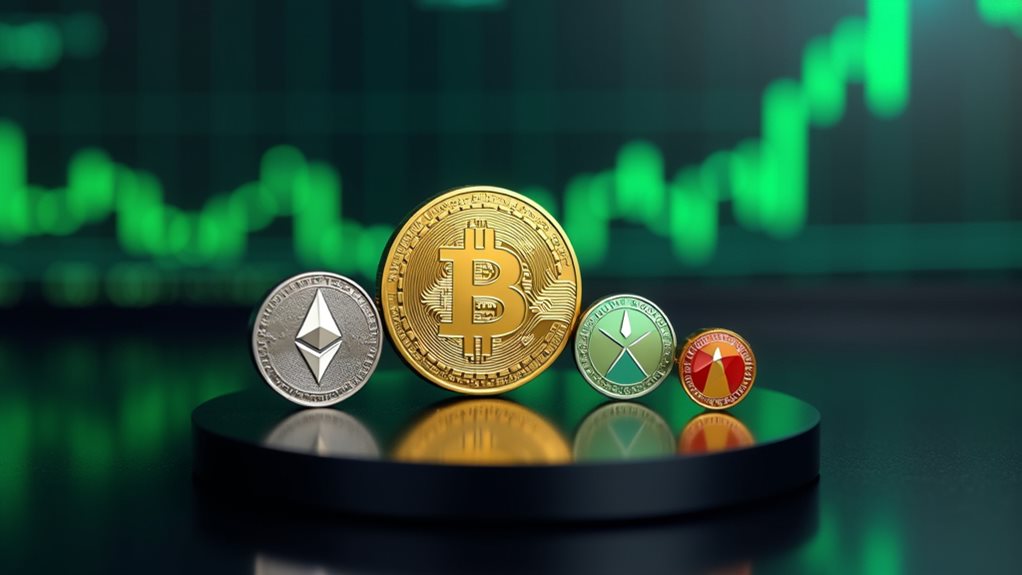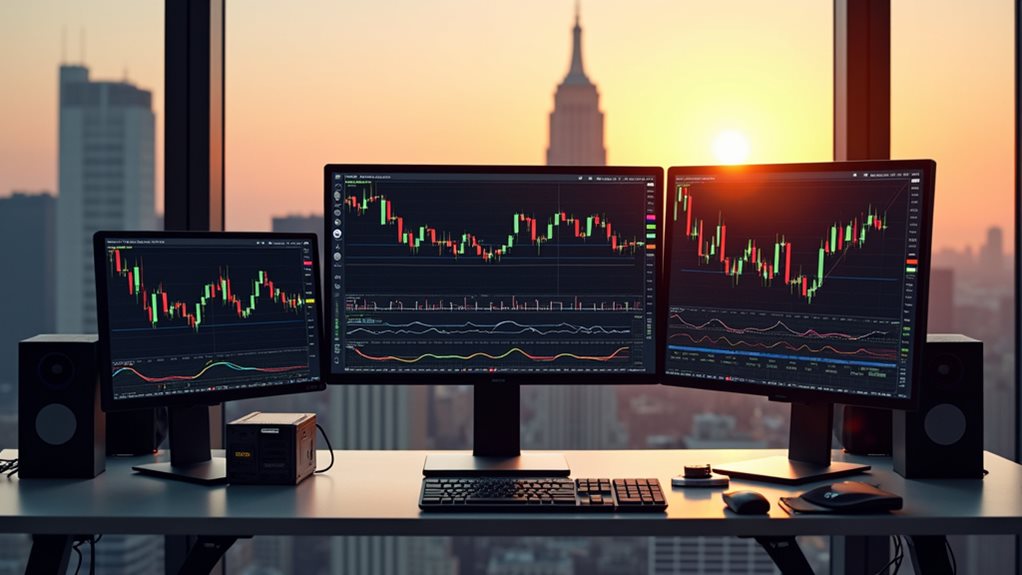Robinhood is making a massive bet on crypto by launching tokenized US stocks and ETFs for European customers across 30 countries. The company is building its own blockchain infrastructure on Ethereum’s Layer 2, targeting an $18.9 trillion market by 2033. They’re promising 24/7 trading, faster settlements, and lower fees while competing directly with crypto giants like Coinbase and Kraken. It’s either brilliant or a recipe for disaster. The full story reveals just how ambitious this gamble really is.

Robinhood just made a massive bet on crypto that could either revolutionize stock trading or blow up spectacularly. The company announced it’s launching tokenized US stocks and ETFs for EU customers, letting them trade commission-free with dividends paid directly in-app. Bold move, considering the regulatory minefield they’re walking into.
Here’s where it gets interesting. Robinhood isn’t just slapping some tokens together and calling it a day. They’re building their own tokenization engine for real-world assets, tapping into what Ripple and BCG research estimates as an $18.9 trillion market by 2033. That’s not chump change.
The technical side is equally ambitious. Initially, these tokenized stocks will live on Arbitrum, Ethereum’s Layer 2 blockchain. But Robinhood has bigger plans – they want to create their own proprietary Layer 2 blockchain based on Arbitrum. Why? Faster trading, lower fees, and eventually 24/7 market access. Because apparently, regular market hours are for peasants. With SEC Crypto Task Force providing clearer regulatory guidance, the path for innovation seems more secure than ever.
This puts Robinhood in direct competition with crypto heavyweights like Bybit, Kraken, Gemini, and Coinbase. The difference? Robinhood is keeping everything in-house, controlling the entire supply chain from issuance to trading. Smart strategy or recipe for disaster? Time will tell.
The expansion doesn’t stop there. US customers are getting crypto perpetual futures trading and staking capabilities for Ethereum and Solana. Meanwhile, EU customers across 30 countries – over 400 million potential users – get access to tokenized US stocks. The platform will feature over 200 companies available for trading as tokens, including both public and privately traded firms. The scale is staggering.
CEO Vlad Tenev clearly sees this as the future of finance. Tokenized assets promise faster settlement, reduced costs, and global accessibility. Trading will start at 24 hours a day, five days a week, eventually moving to true 24/7 once their blockchain launches. The company plans to launch a credit card feature that automatically converts cashback into digital assets by fall 2025.
Robinhood has already dropped $400 million on crypto acquisitions, proving they’re serious about this pivot. They’re even ditching EOS trading due to token migration issues, showing they’re willing to make tough calls.
This gambit could fundamentally change how we think about stock trading. Or it could be an expensive lesson in why traditional finance moves slowly. Either way, it’s going to be fascinating to watch.









